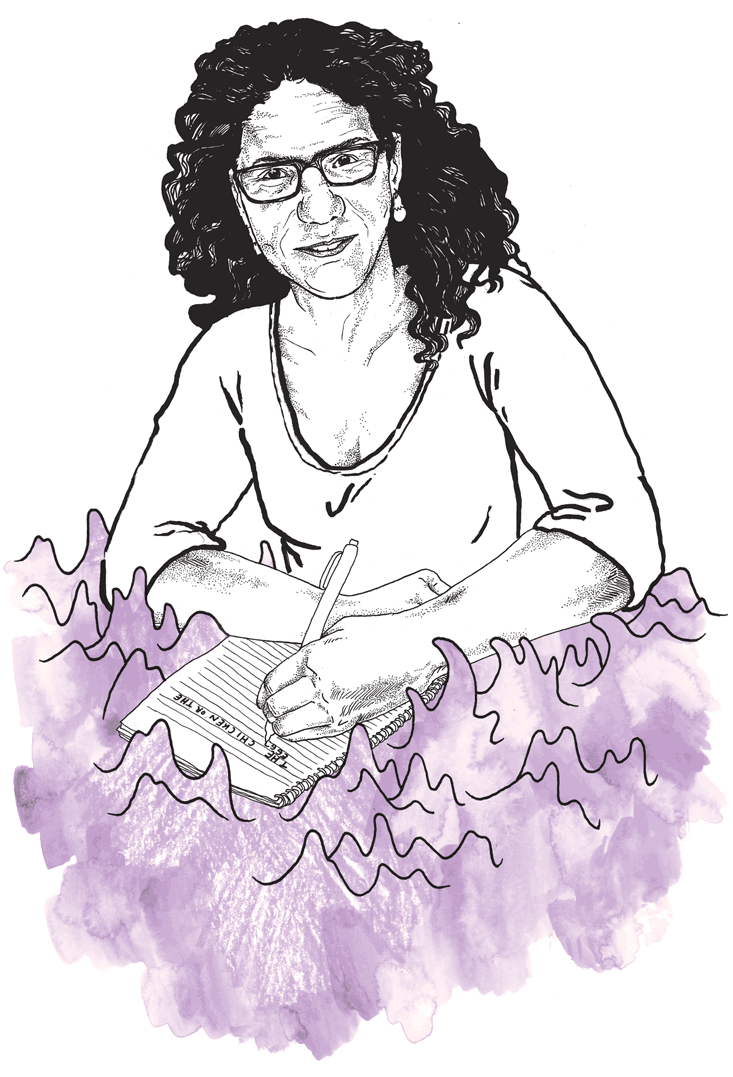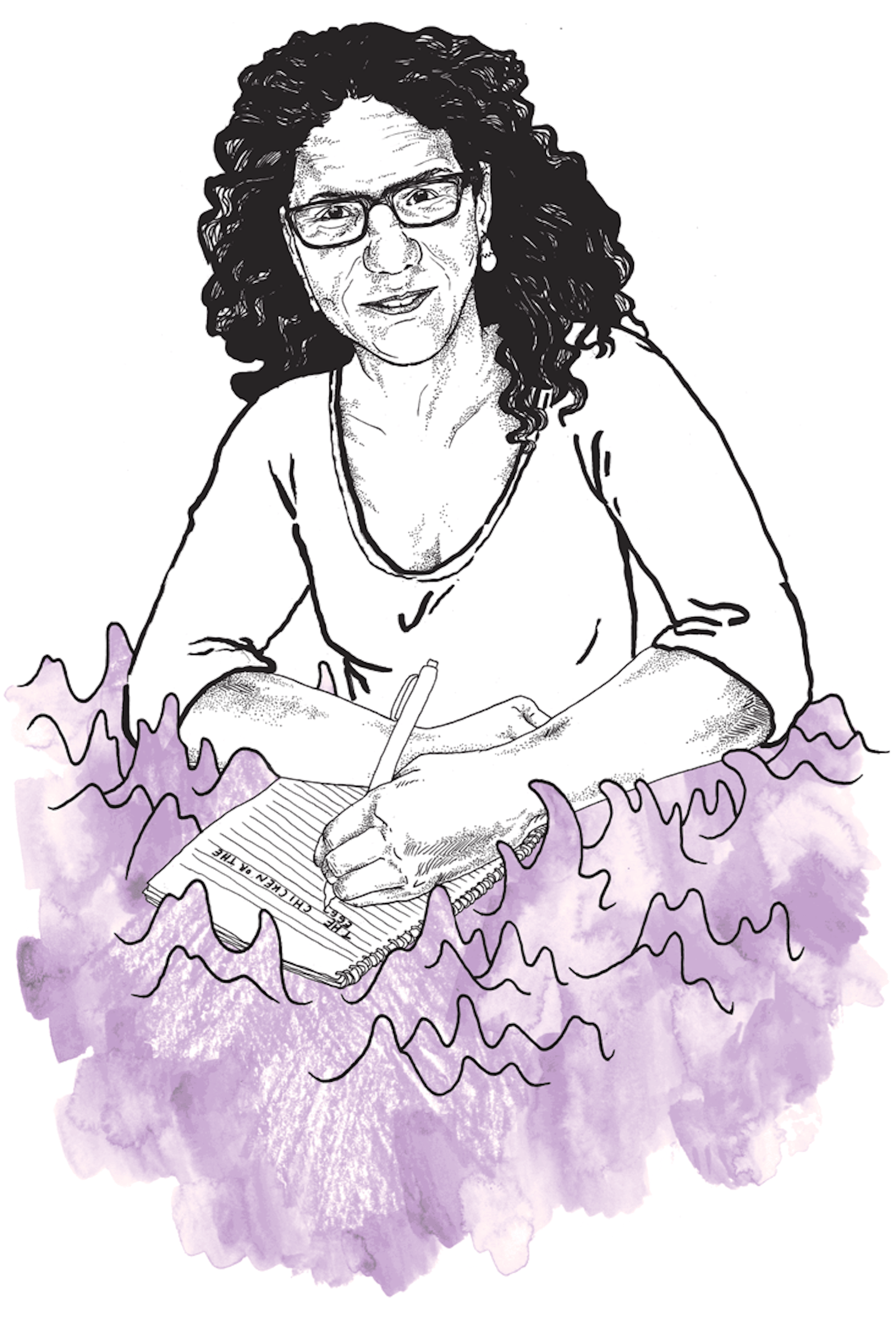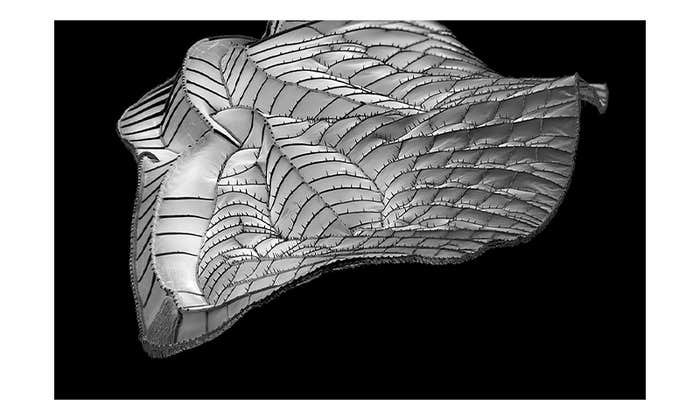
Eileen Pollack, author of The Only Woman in the Room: Why Science Is Still a Boys’ Club, hinted at the complexity of the relationship between science and the soul in a recent essay: “We need scientists who recognize the reality of this illusion we still call the soul and artists who know how intimately the reality of that soul will remain connected to the physical world—to science.”
In many ways, her fiction follows this suggestion. It draws on her scientific background—she graduated from Yale University in 1978 with a BS in Physics—and her later pursuits in literature, philosophy, and creative writing as a graduate student.
In her latest novel, A Perfect Life, for example, published last month, a woman researcher at the Massachusetts Institute of Technology is obsessed with finding the genetic marker for Valentine’s Disease, the heritable neurological disorder that killed her mother. Though the story derives its momentum from a scientific mystery, it still manages to present profound questions around the giving and taking of life, destiny and free will. “I felt like it brought together all the parts of my life,” says Pollack. She was still “very much a scientist,” she says, when she wrote a first draft of A Perfect Life back in the 1990s, still thinking and seeing the world as a person trained in physics would. “It just took me a long time to find an audience. It was very hard to convince publishers that women readers would want to read anything that had science in it.”
Over lunch recently, we spoke about the overlap of science and storytelling in Pollack’s career, as well as the obstacles women face in pursuing science. As a professor of creative writing at the University of Michigan (Pollack was my MFA thesis advisor), she’s attuned to the difficulties involved in the novelist’s and the scientist’s creative life, and the similarities between them. “I’m really good at sitting in a chair in a room by myself and just closing my eyes and being in my own head,” she says. “To me, that’s what both fields really share. We’re raised with all these false binaries. People think that everybody is either good at the humanities or the sciences and that you can’t be good at both. Nobody’s ever proven that.”
Why do people still see the humanities and the sciences as so disparate today?
Most of us are not fortunate enough to have teachers who are good at everything. So you get a good teacher who makes you feel confident in their subject, and you say, “Oh, I love writing.” And then you get a teacher who’s not so good in something else and maybe makes you hate it. Those early experiences, combined with this idea that you can only be good at one subject, makes people say, “I’m really good at science, but I hate writing.” This notion that you’re either a left-brain or right-brain person—there’s no real scientific basis for that.
In a better society, we would have people who felt comfortable in both worlds. We’d have scientists who thought a lot more about the implications of what they’re doing for the larger culture. And writers and artists who were thinking much more about science: how it affects what it means to be human, and where technology and new ideas about the universe—and who we are biologically—are taking us.
Does the humanities-sciences binary contribute to the lack of women in science?
I think it’s a huge factor. We lose most women in junior high when the pressures to be popular and datable are so strong. The cultural image is that being good at science and math means you’re not feminine. It was definitely true when I was young. I was told: “Why would you want to do science? You write such nice stories, and that’s such a nice career for a girl. You could teach English and then get married.” But what was shocking to me was how little that has changed. These are all just wacky cultural ideas that we grew up with, never testing them. Why can’t we be interested in both science and the humanities? There are a lot of really good popular science books now. So even if you can’t solve an equation, you can get some sense of what we’re made of, and what’s going on in the universe. I know people are interested in that, but they often turn to religion alone to answer those questions.
Great scientists know what they’re doing is more like an art than most people would imagine.
How does the religious perspective fit into our sense of wonder?
I’ve written about religion a lot. I was raised nominally Orthodox Jewish, although I left the orthodoxy behind. I think religion, art, and science all ask the same questions: Where did all this come from? How could this be? I’ve been obsessed with those questions since I was the littlest kid. I’ve turned to religion and philosophy and science and literature to try to help me think about those questions. So, in one book, I’m writing from a more distinctly Jewish point of view, and in some books, philosophy, in some, science. But I’m trying to get at the same questions, and that feeling of awe. I understand people who want to believe in intelligent design and who think the world is just too marvelous and complex to have evolved by itself—at least they’re alive to how amazing this all is, and how contingent. The people I don’t get are the ones who just take it all for granted, never thinking about the society they’ve inherited or what a tiny speck we are in an unimaginably vast universe.
Is curiosity all you need to become a scientist?
You can become a scientist because you want to know how an egg becomes a chicken. You become a mediocre scientist if you think that anything you’ve ever read in your biology textbook actually explains how that happens. That’s why I think scientists have no defense against awe. Because the more you know, the more you’re going: “But why is that? How did that cell know that it should be an eye cell?” The good scientists I know live in this perpetual state of wonder. Which writers do, too, because you can’t take for granted that life just happens. You have to defamiliarize what’s everyday so you can really see and create it on a page in a way that feels new.
Virginia Woolf said most of what we go through is like cotton wool—nothing’s making an impression on you—and then something punches through the cotton wool. She talks about seeing a flower that way when she was a kid and realizing it was attached to the whole Earth. Scientists and writers and artists all have these moments when they’re not taking everything for granted. They’re wondering and seeing and participating.
Are there artistic sensibilities unique to scientists?
Scientists are successful because they have great imaginations. To come up with something new, you need to be able to imagine something that doesn’t exist yet. You’re often picturing in your head things that are either too small or too far away or too abstract to actually be seen. So you’re either trying to picture it or you’re coming up with a metaphor for it. What is that if not imagination? The kind of physics I was really good at was quantum mechanics and gravitational theory. The more abstract something is, the better I am at imagining it. So what are particles doing with each other? What are electrons doing in their orbits?
And what do I do as a writer? I sit with my eyes closed and imagine people who don’t exist doing things they never did. Great scientists know what they’re doing is more like an art than most people would imagine.
Roohi Choudhry is a writer, teacher and social science researcher. Her writing has appeared in the Kenyon Review, Big Think, and the Rumpus, among others, and is forthcoming in Ploughshares.






























